Are you looking to improve your health and wellness through better nutrition? If so, you're in the right place! This article will guide you through the process of getting a nutritional counseling referral and explain how it can transform your eating habits and overall well-being. Ready to embark on this journey towards a healthier you? Let's dive in!

Patient Information
Nutritional counseling referrals provide essential support for individuals seeking to improve their dietary habits and overall health. These referrals often include patient information such as full name, age, weight, and height, which are crucial for personalizing dietary plans. Additional details like medical history, existing health conditions (such as diabetes or hypertension), and a list of current medications are vital for understanding the patient's unique nutritional needs. Specific concerns, such as food allergies or intolerances, can also influence dietary recommendations. This comprehensive data helps nutritionists develop effective strategies tailored to the individual's lifestyle and health goals, ultimately promoting better nutrition and wellness.
Reason for Referral
Nutritional counseling referrals often arise from specific health concerns that require expert dietary advice. Common reasons for referral include management of chronic diseases such as type 2 diabetes, where nutritional strategies can significantly affect blood glucose levels. Weight management issues, particularly obesity (defined as a Body Mass Index over 30), are frequently addressed through tailored meal plans and lifestyle modifications aimed at achieving sustainable results. Patients recovering from surgery may also require nutritional support to aid healing and maintain adequate nutrient intake. Additionally, individuals preparing for athletic events or those in competitive sports often seek guidance on optimizing performance through diet, focusing on macronutrient ratios and meal timing. Other specific dietary needs can stem from food allergies or intolerances, such as gluten intolerance or lactose sensitivity, necessitating specialized plans to ensure safe and nutritious eating.
Relevant Medical History
Nutritional counseling referrals often consider relevant medical history that can significantly impact dietary needs. Conditions such as diabetes (affecting over 34 million Americans) require careful monitoring of carbohydrate intake to maintain blood glucose levels. Cardiovascular diseases, which account for approximately 697,000 deaths annually in the United States, necessitate a focus on heart-healthy diets low in saturated fats and cholesterol. Patients with gastrointestinal disorders, like irritable bowel syndrome (affecting around 10-15% of adults), may need specialized dietary strategies to manage symptoms. Food allergies or intolerances, prevalent in about 8% of children and 4% of adults, are critical for crafting safe meal plans. Additionally, autoimmune diseases can influence nutritional status, emphasizing the need for tailored dietary recommendations. Understanding these medical backgrounds helps nutritionists and dietitians develop effective, personalized dietary interventions for improved health outcomes.
Specific Nutritional Concerns
Individuals seeking nutritional counseling often face various specific concerns impacting their health and well-being. Common issues include weight management (requiring personalized meal plans to achieve optimal Body Mass Index), food allergies (such as gluten or dairy intolerance necessitating careful ingredient tracking), and chronic conditions (like diabetes or hypertension demanding tailored dietary adjustments). Nutritional deficiencies (for example, low iron or vitamin D levels affecting energy and immunity) require expert guidance to implement corrective dietary strategies. Furthermore, individuals with gastrointestinal disorders (such as IBS or Crohn's disease) need specialized nutrition protocols to alleviate symptoms and enhance digestive health. A comprehensive assessment by a registered dietitian can provide these individuals with the necessary tools and knowledge to achieve their specific health goals effectively.
Desired Outcomes and Goals
Nutritional counseling aims to achieve several key outcomes tailored to individual needs. Personalized meal plans emphasize whole foods, such as fruits, vegetables, lean proteins, and whole grains, promoting a balanced diet. Monitoring progress through regular assessments clarifies dietary habits and weight management, fostering accountability. Educational sessions focus on understanding macronutrients and micronutrients, empowering clients to make informed food choices. Behavioral strategies, including mindful eating techniques, enhance awareness of hunger cues and emotional triggers associated with food consumption. Lastly, establishing long-term lifestyle changes supports sustainability, helping individuals maintain their health goals beyond the counseling period.
Letter Template For Nutritional Counseling Referral Samples
Letter template of personalized nutrition referral for lifestyle changes
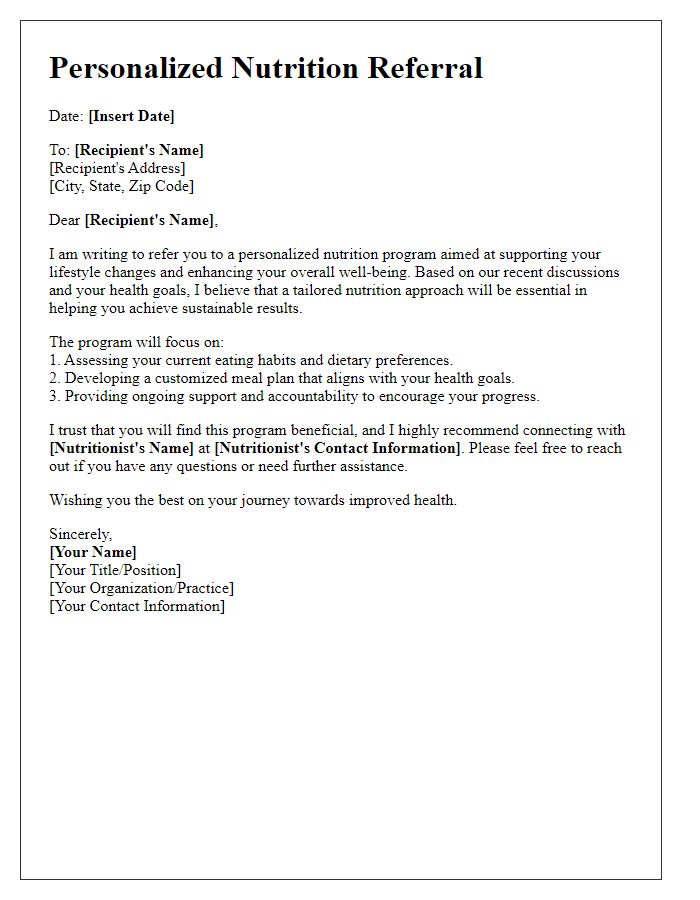

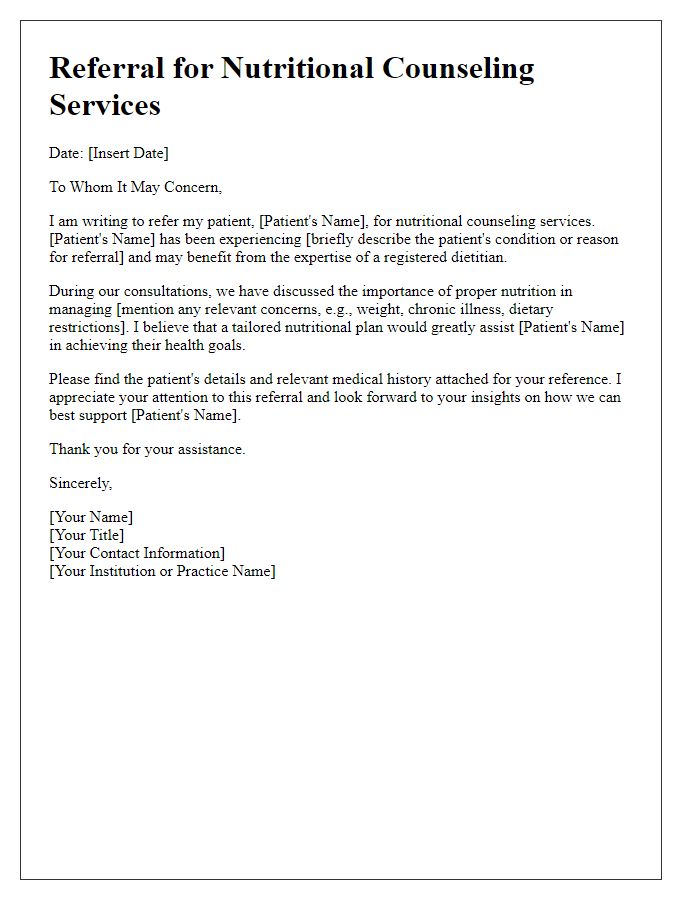
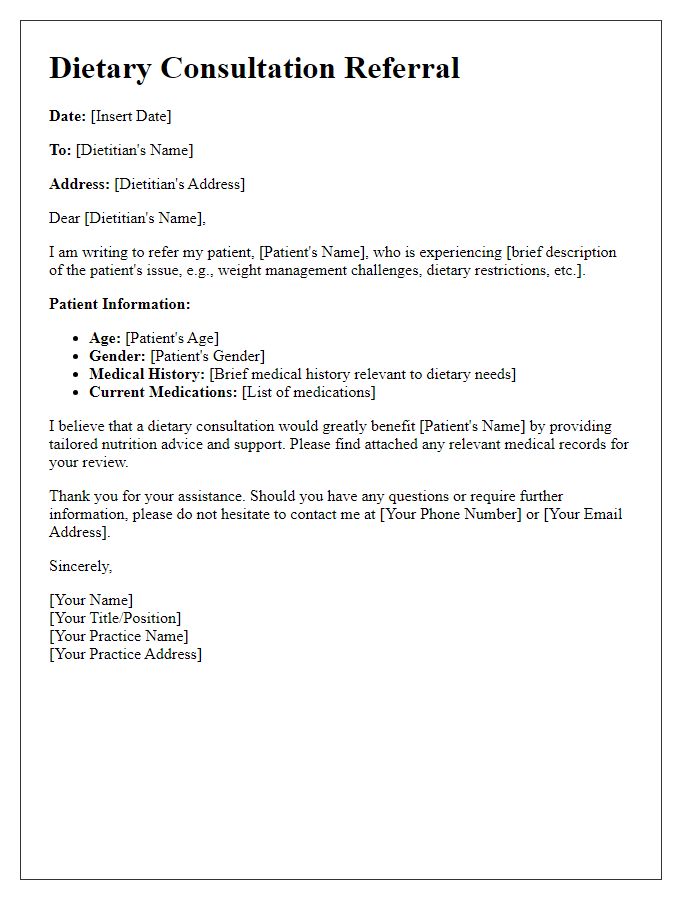
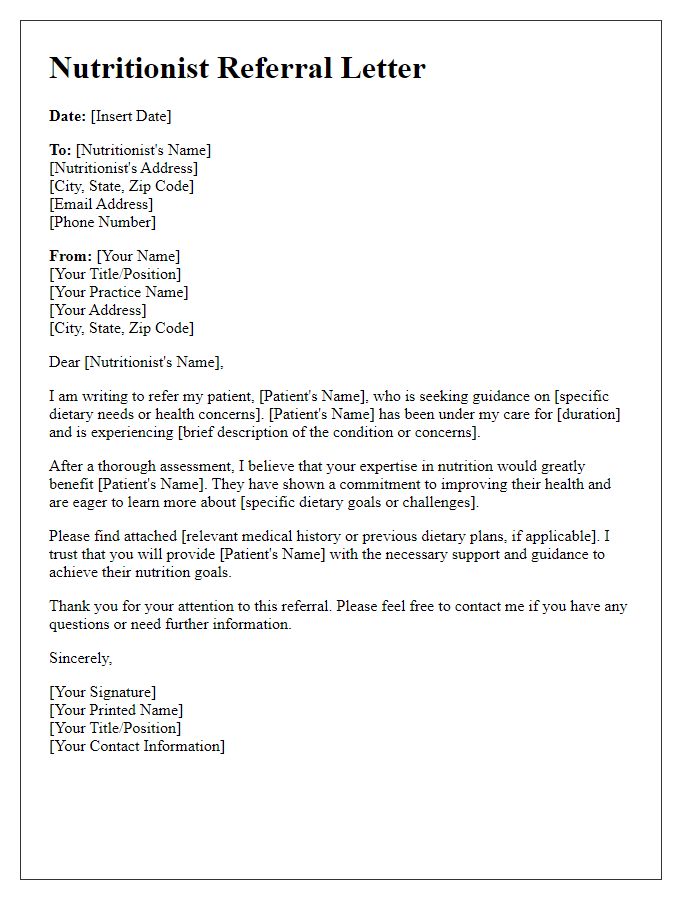
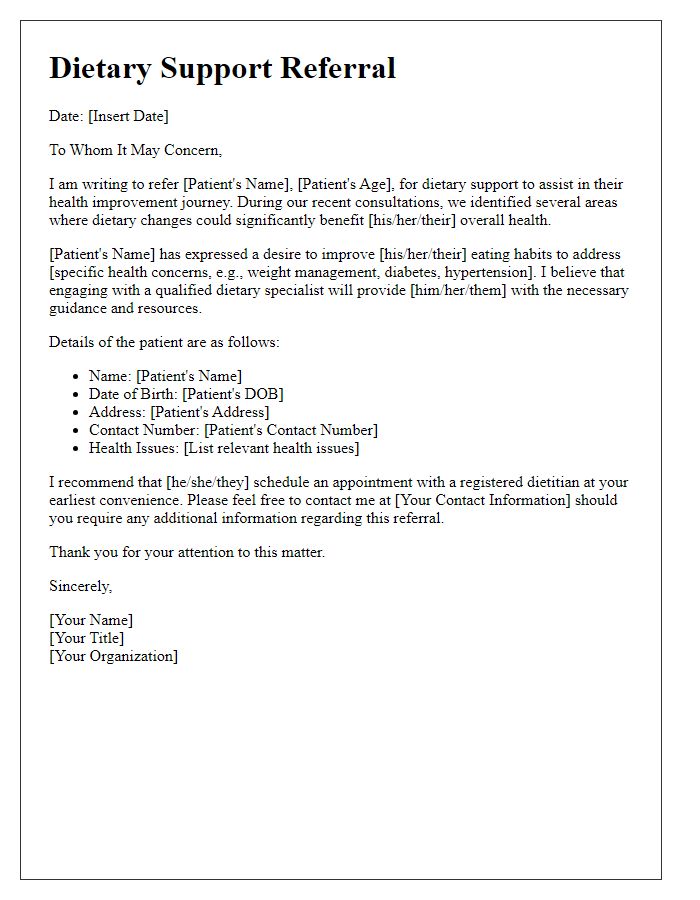
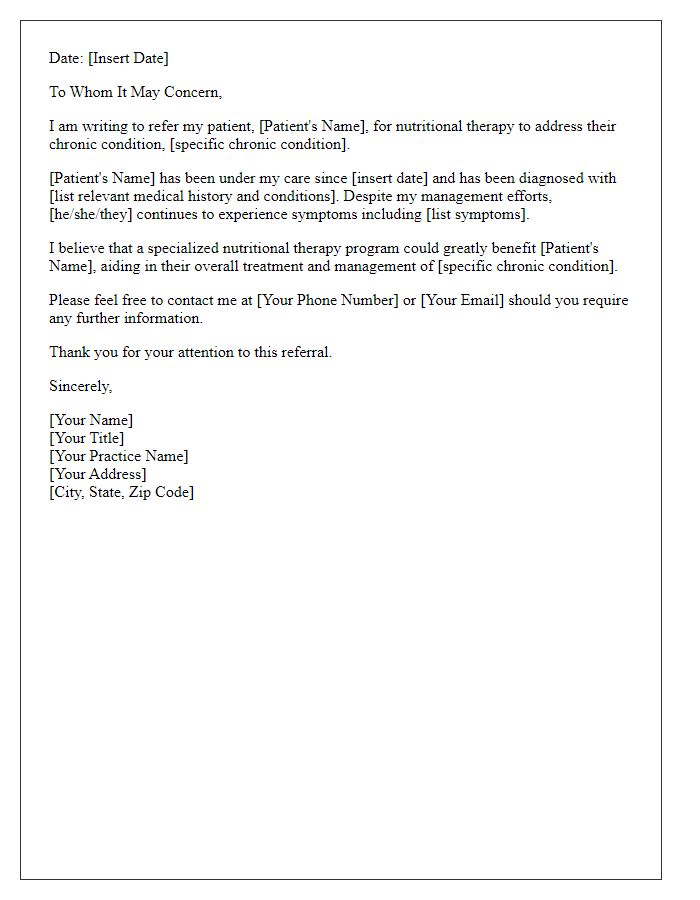
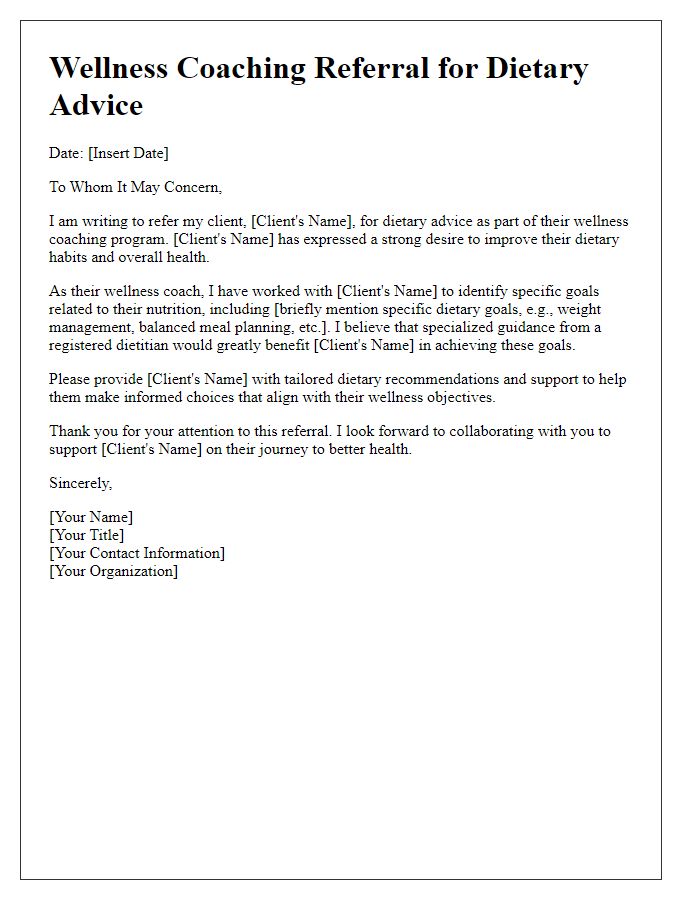
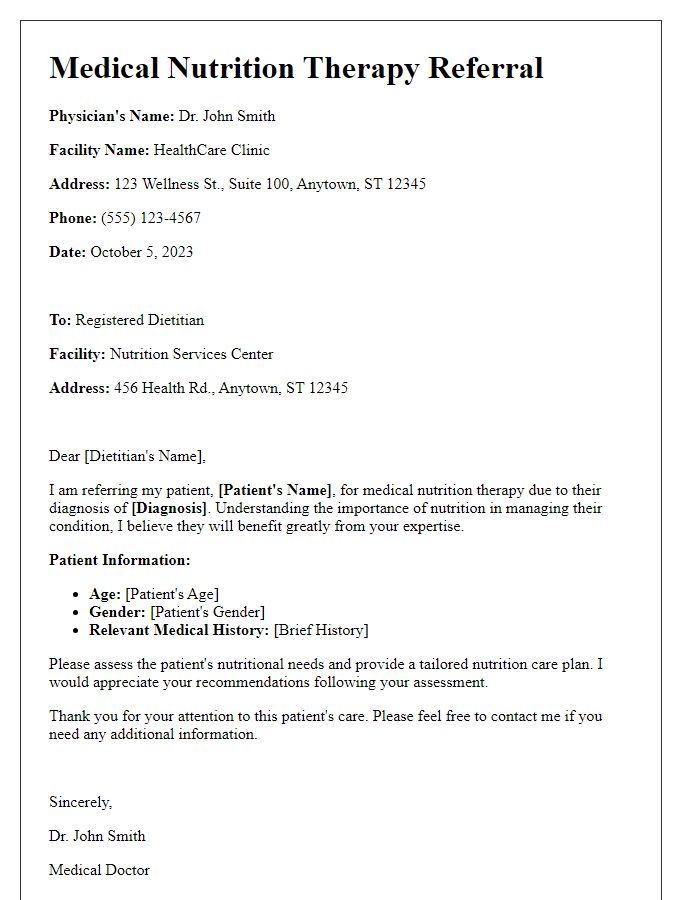
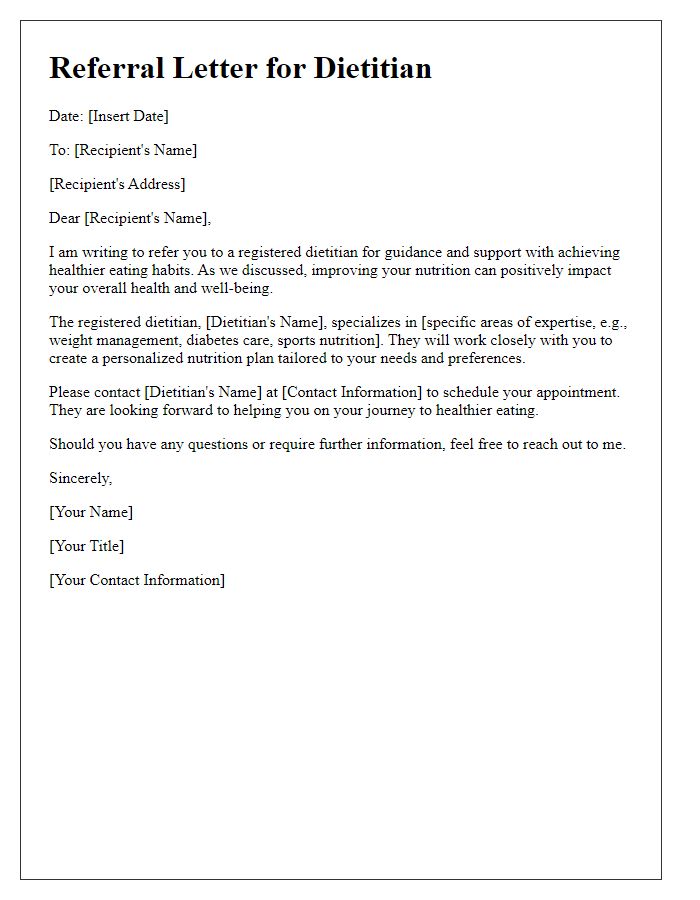
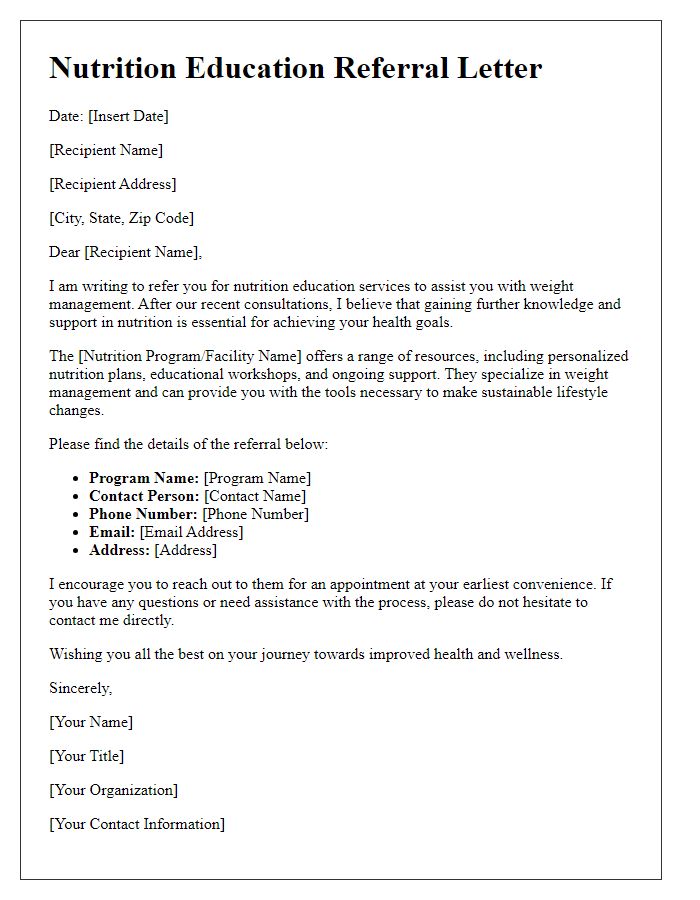


Comments